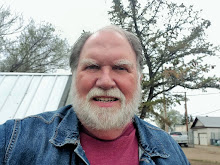I took an Athabasca University English Composition course a decade ago. I thought that it would be interesting to turn some of my assignment essays -- such as this one -- into blogs.
I have moved since I wrote this but my books have accompanied me to my new home:
I have moved since I wrote this but my books have accompanied me to my new home:
My Edmonton apartment feels a bit cramped; perhaps there are too many bookshelves? Their contents vary from software manuals to great literature. Many of the shelves are stuffed with the accumulated flotsam and jetsam from my foreign travels. These books are valued literary friends. In many instances though, they are judged by their covers even while the contents remain unread. They shout out to be opened and have their contents read; but how do I choose?
I have travelled far from Canada. When I planned foreign trips, the destination was rarely a particular country but instead an experience or perhaps a person. I did not set out to visit India but rather I set out to go “around the world” and then filled in the gaps. Going to Australia – at least on my second and third visits – was represented by a certain friend from the beach more than any desire to see the Outback. Rather than planning for East Asia, I was making efficient use of the airplane ticket rules; cramming in every possible stopover. But then, once I had arrived in some new country, the destination became interesting and I would gather travel guides, atlases and history tomes. I have read more about countries after I left them for the final time than I ever read before my first arrival.
Many of my favourite books were discovered at bargain prices in the back bins of dusty bookstores. Others are more recent eBay discoveries. When I have time for pleasure reading I browse my shelves for something interesting. But which unread book will it be? I enjoy books where cultures and civilizations intersect. Perhaps something about Western travellers in China will be a good choice tonight?
How about an imposing thick volume: Borderlands of Eternity embracing ''Across China on Foot'' by Edwin J. Dingle? (Dingle) Hmmm. A peak inside reveals that Edwin John Dingle was the “Founder of the Science of Metaphysics” and the original publication date is 1911. A page flip reveals photos of walking trips through Burmese mountains and boat travel on the upper Yangtze River. Fascinating I am sure, but this doorstop of a volume is rather too thick, embracing as the cover declares, two books in one.
Maybe I should attempt Behind the Ranges, Fraser of Lisuland, Southwest China by Mrs. Howard Taylor. (Taylor) First published in 1944, this appears to be the earnest and sober biography of missionary James Outram Fraser. (He certainly looks earnest and sober in the preface photograph). A label inside the front reveals that it was “Awarded to Arnold Fenton” by a Sunday school in 1959. I wonder if young Fenton read it himself and what life-lessons he gleaned from its pages. It covers the same interesting geographic area as the Dingle volumes, so I must someday give it an earnest and sober read.
Something with less heft would be a better choice. A Thousand Miles Of Miracle in China is described on its cover as “Extraordinary, Absorbing, Thrilling”. The title page reveals it as a 1904 personal account “by Archibald E. Glover, M.A. (Oxon.), of the China Inland Mission”. There are detailed maps and some photos of the nineteenth century Boxer Rebellion. The chapter titles promise high-adventure: “A Hairbreadth Escape”, “Travelling to the Execution” and “Left to the Mob”. (Glover) I do suspect that its Christian sermonizing might be too heavy for my current taste.
No, I think that something slightly more modern and somewhat less earnest will be better. Here is the novel Nanking Road by Vicki Baum published in 1939. The cover has a lovely impressionistic sketch of old Shanghai’s main shopping road. The hotel in that scene looks quite like the one where I stayed during my own Shanghai visit in 2000. While I have not read her books, I do know that Ms. Baum’s Grand Hotel was a big thirties hit. The 805 page length does seem a bit intimidating and I am not sure I want to spend weeks enmeshed, as promised, in the lives of a “multi-millionaire who began life as a rickshaw coolie”, “a celebrated gynaecologist flying from Nazi persecution” and a wealthy Englishman “dabbling in espionage”. (Baum)
Perhaps a view of Asia by an Asian will be tonight’s final choice. I own a copy of The Silent Traveller in Japan by Chiang Yee. From the forties to the seventies, Mr. Chiang wrote a series of Silent Traveller books illustrated with personal pen sketches, poetry, calligraphy and pithy observations. A couple years ago, I quite enjoyed reading his Silent Traveller in San Francisco. He noticed things out of the ordinary and met such interesting people. So the Silent Traveller it will be. Pushing back my keyboard, I leap into the first sentence: “I have paid Japan four visits so far…” (Chiang) and I continue reading long into the night.
Works Cited
Dingle, Edwin J. Borderlands of Eternity embracing “Across China on Foot”. Bristol, England & New York, NY: J.W. Arrowsmith & Co., 1911.
(Copyright 1939 Edwin John Dingle)
(Copyright 1939 Edwin John Dingle)
Taylor, Mrs. Howard Behind the Ranges, Fraser of Lisuland, Southwest China. London, UK: China Inland Mission, 1944
Glover, Archibald E. A Thousand Miles of Miracle in China.
London & Glasgow: Pickering & Inglis, 1904.
Baum, Vicki. Nanking Road.
London, UK: Geoffrey Bles, 1939.
Chiang Yee. The Silent Traveller in Japan. New York, NY: W.W. Norton & Co. 1972

